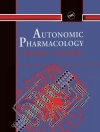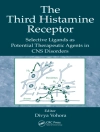Heat shock proteins are emerging as important molecules in the development of cancer and as key targets in cancer therapy. These proteins enhance the growth of cancer cells and protect tumors from treatments such as drugs or surgery. However, new drugs have recently been developed particularly those targeting heat shock protein 90. As heat shock protein 90 functions to stabilize many of the oncogenes and growth promoting proteins in cancer cells, such drugs have broad specificity in many types of cancer cell and offer the possibility of evading the development of resistance through point mutation or use of compensatory pathways. Heat shock proteins have a further property that makes them tempting targets in cancer immunotherapy. These proteins have the ability to induce an inflammatory response when released in tumors and to carry tumor antigens to antigen presenting cells. They have thus become important components of anticancer vaccines. Overall, heat shock proteins are important new targets in molecular cancer therapy and can be approached in a number of contrasting approaches to therapy.
İçerik tablosu
The Hsp90 Chaperone Machinery Acts at Protein Folding Clefts to Regulate Both Signaling Protein Function and Protein Quality Control.- Implications of Heat Shock Proteins in Carcinogenesis and Cancer Progression.- HSF1: An Emerging Factor In Cancer.- Anti-apoptotic, Tumorigenic and Metastatic Potential of Hsp27 (Hsp B1) and ?B-crystallin (Hsp B5): Emerging Targets for the Development of New Anti-Cancer Therapeutic Strategies.- Heat Shock Protein-27 (Hsp-27) in Breast Cancers: Regulation of Expression and Function.- Role of Heat Shock Protein Hsp25/27 in~the~Metastatic Spread of Cancer Cells.- Heat shock chaperone mortalin and carcinogenesis.- Role of Molecular Chaperones in Cell Senescence.- Involvement of Heat Shock Proteins in Protection of Tumor Cells from Genotoxic Stresses.- Hsp70 in Tumors: Friend or Foe?.- Hsp70 and Hsp27 as pharmacological targets in apoptosis modulation for cancer therapy.- Heat Shock Protein 90: The Cancer Chaperone.- Targeting Hsp90 Function to Treat Cancer: Much More to Be Learned.- Small-molecule Hsp90 Inhibitors: Applications in Cancer and Neurodegenerative diseases.- Drugging the Hsp90 molecular chaperone machine for cancer treatment.- Cdc37 and protein kinase folding.- The Elevated Levels of Heat Shock Proteins In Cancer: A Suitable Case For Treatment?.- Hsp70-Based Anticancer Vaccines: Chaperoning The Immune Response.- Piloting of exogenous antigen into cross-presentation pathway by heat shock proteins.












